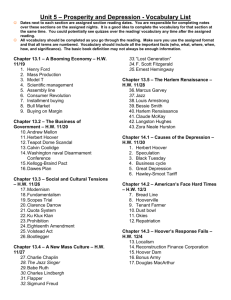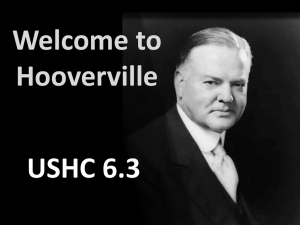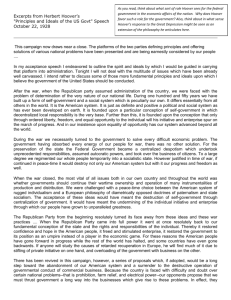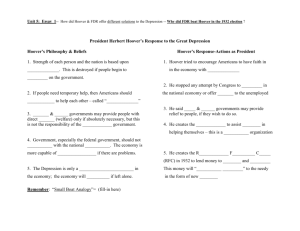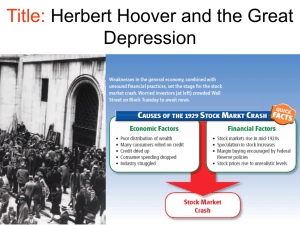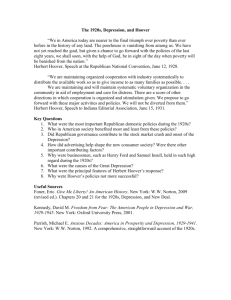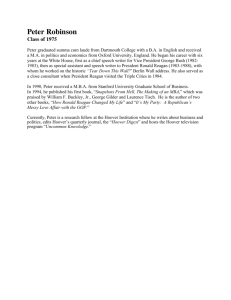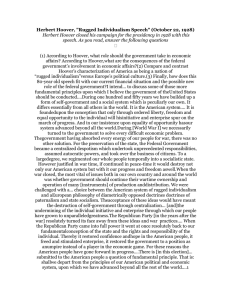Americans and "Rugged Individualism"
advertisement
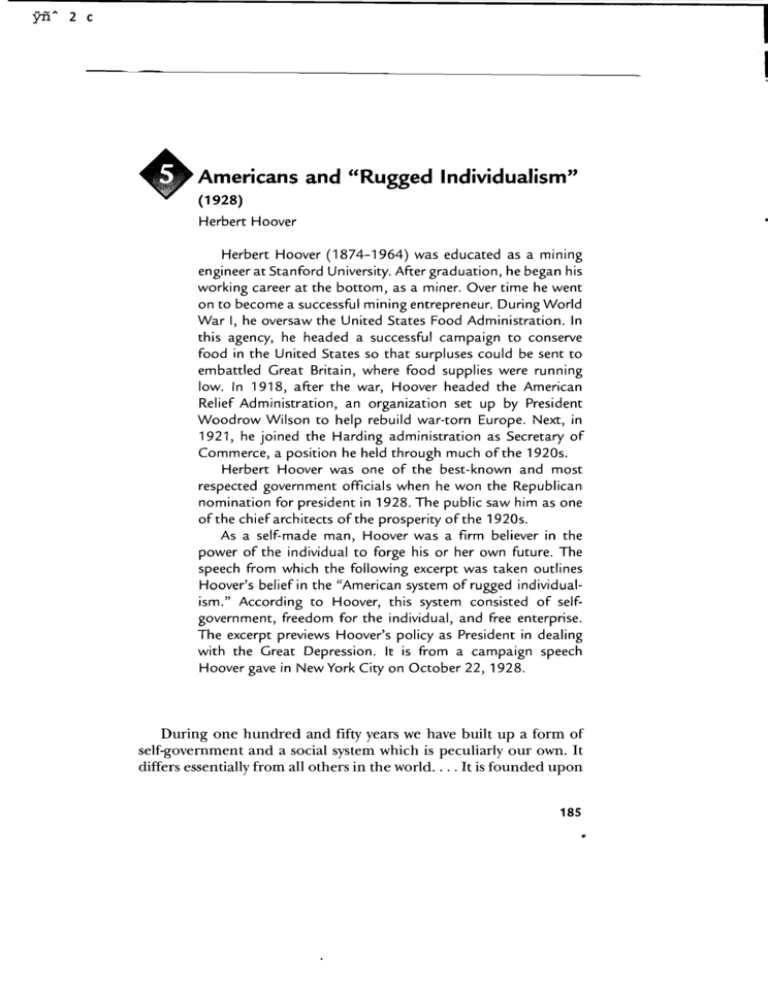
ynA 2 I c I Americans and "Rugged Individualism" (1928) Herbert Hoover Herbert Hoover (1874-1964) was educated as a mining engineer at Stanford University. After graduation, he began his working career at the bottom, as a miner. Over time he went on to become a successful mining entrepreneur. During World War I, he oversaw the United States Food Administration. In this agency, he headed a successful campaign to conserve food in the United States so that surpluses could be sent to embattled Great Britain, where food supplies were running low. In 1918, after the war, Hoover headed the American Relief Administration, an organization set up by President Woodrow Wilson to help rebuild war-torn Europe. Next, in 1921, he joined the Harding administration as Secretary of Commerce, a position he held through much of the 1920s. Herbert Hoover was one of the best-known and most respected government officials when he won the Republican nomination for president in 1928. The public saw him as one of the chief architects of the prosperity of the 1920s. As a self-made man, Hoover was a firm believer in the power of the individual to forge his or her own future. The speech from which the following excerpt was taken outlines Hoover's belief in the "American system of rugged individual­ ism." According to Hoover, this system consisted of self­ government, freedom for the individual, and free enterprise. The excerpt previews Hoover's policy as President in dealing with the Great Depression. It: is from a campaign speech Hoover gave in l\Jew York City on October 22, 1928. During one hundred and fifty years we have built up a form of self-government and a social system which is peculiarly our own. It differs essentially from all others in the world.... It is founded upon 185 . YfiA 2 I c I 186 Prosperity and Depression at Home and Abroad a particular conception of self-government in which decentralized local responsibility is the very base. Further than this, it is founded upon the conception that only through ordered liberty, freedom, and equal opportunity to the individual will his initiative and enter­ prise spur on the march of progress. And in our insistence upon equality of opportunity has our system advanced beyond all the world. During the war we necessarily turned to the government to solve every difficult economic problem. The government having absorbed every energy of our people for war, there was no other solution.... However justified in time of war if continued in peace-time it would destroy not only our American system but with it our progress and freedom as well. When the war closed, the most vital of all issues both in our own country and throughout the world was whether governments should continue their wartime ownership and operation of many instru­ mentalities [means] of production and distribution. We were chal­ lenged with a peace-time choice between the American system of rugged individualism and a European philosophy of diametrically [completely] opposed doctrines-doctrines of paternalism and state socialism. The acceptance of these [European] ideas would have meant the destruction of self-government through centralization of government. It would have meant the undermining of the individ­ ual initiative and enterprise through which our people have grown to unparalleled greatness. The Republican Party from the beginning resolutely turned its face away from these ideas and these war practices. . . . When the Republican Party came into full power it went at once resolutely back to our fundamental conception [idea] of the state and the rights and responsibilities of the individual. Thereby it restored con­ fidence and hope in the American people, it freed and stimulated enterprise, it restored the government to its position as an umpire instead of a player in the economic game. For these reasons the American people have gone forward in progress while the rest of the world has halted, and some countries have even gone backwards. If anyone will study the causes of retarded recuperation [slow recovery from the war] in Europe, he will find much of it due to the stifling of private initiative on one hand, and overloading of the govern­ ment with business on the other.
